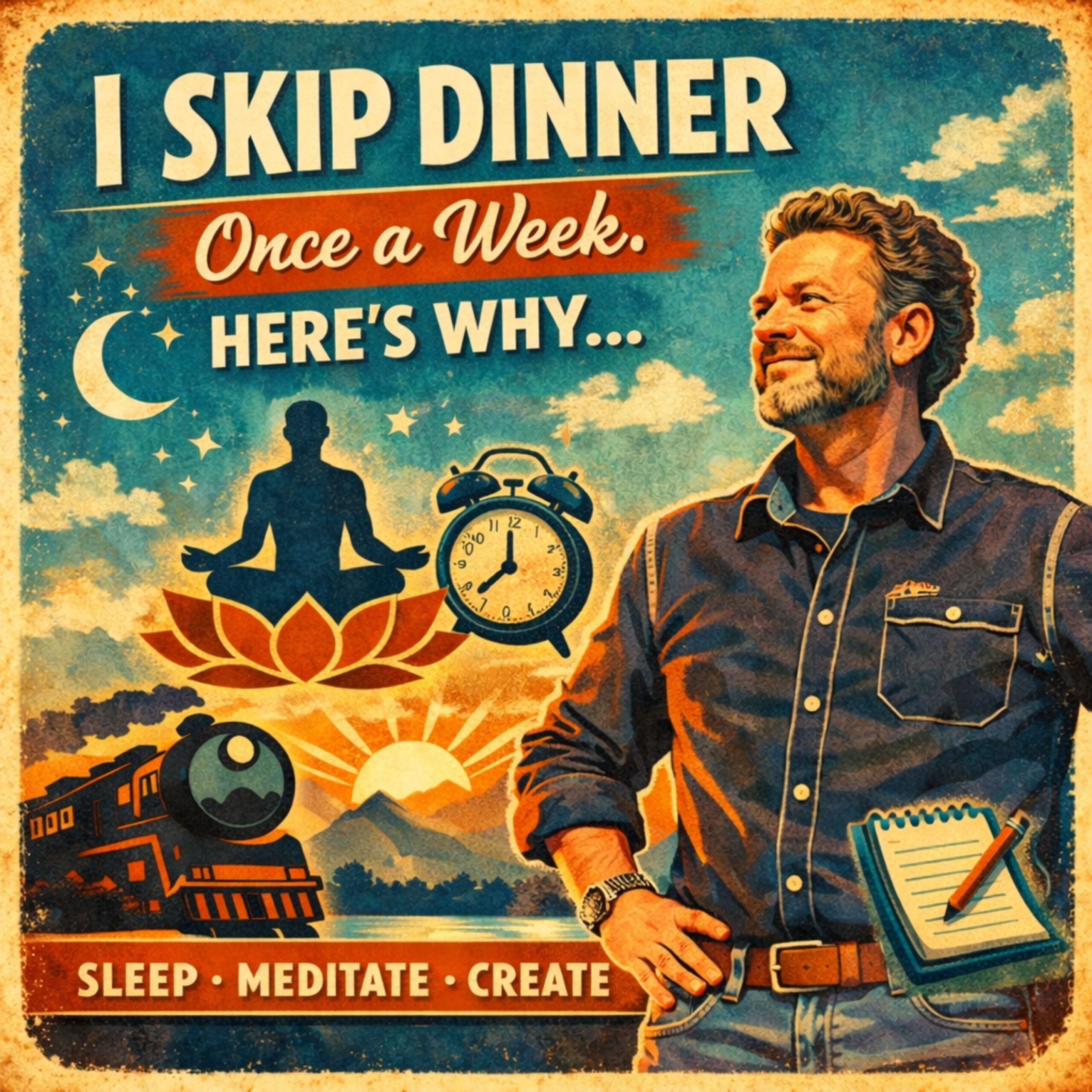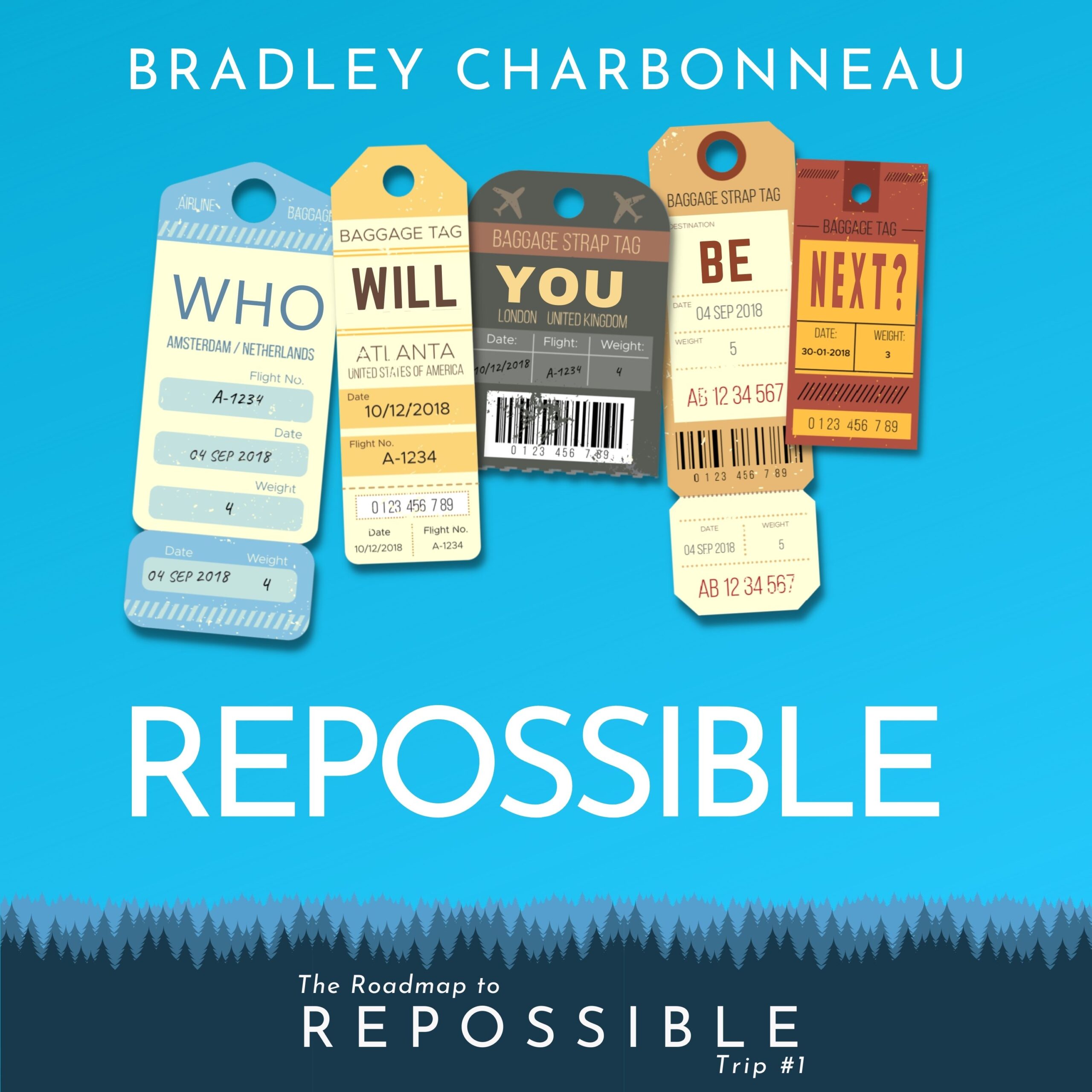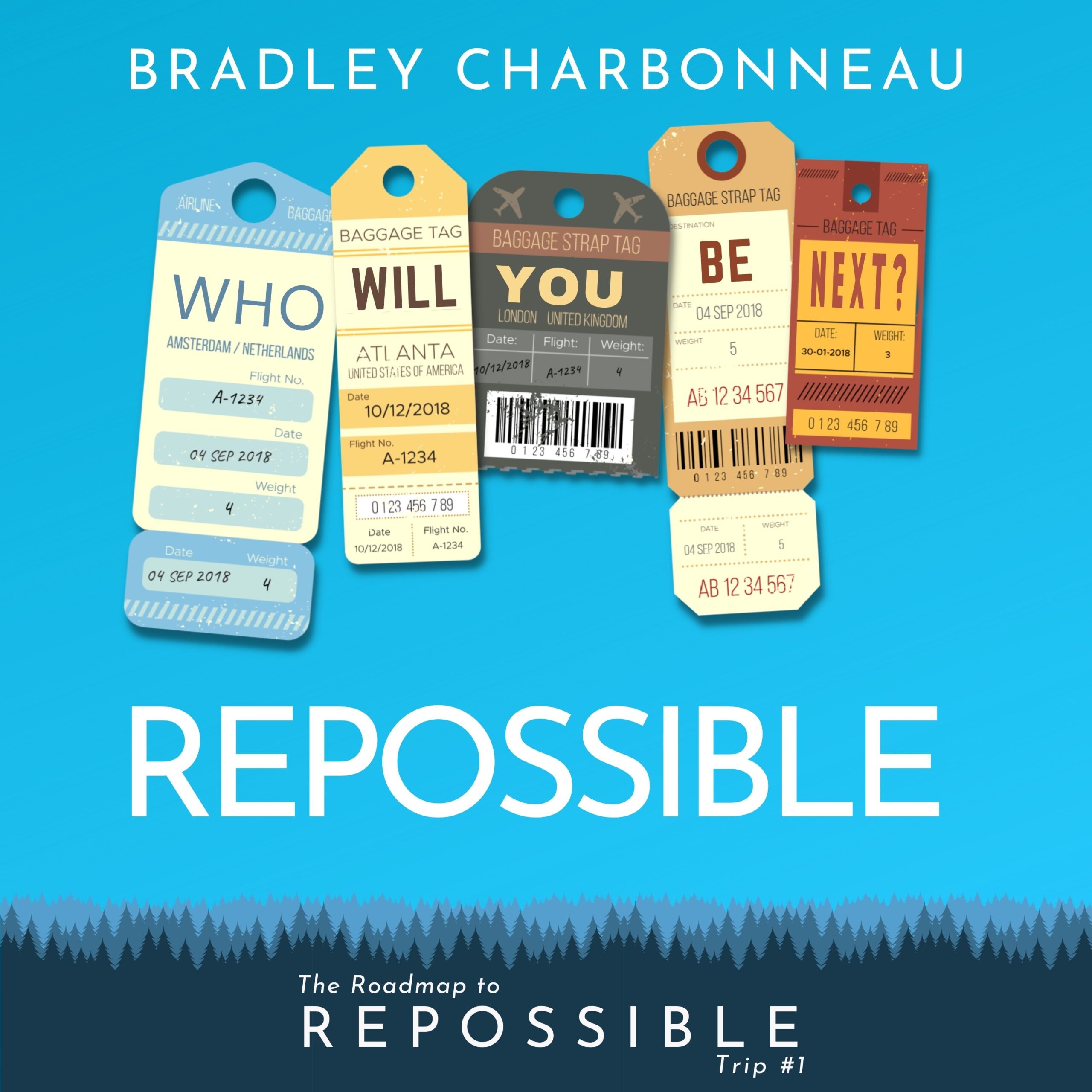Episode Transcript
[00:00:00] Speaker A: Welcome to the deep dive. Today we're going to take on something that feels almost sacred and personal development. This idea that you should never ever quit.
[00:00:10] Speaker B: Right.
[00:00:10] Speaker A: We're going to dive into the wisdom of quitting. Not as failure, but as well. A really critical skill for success.
[00:00:17] Speaker B: A high level skill. Absolutely.
[00:00:19] Speaker A: So our mission today is to look at what you should quit, why it's so hard to do, and how frameworks like, you know, the Enneagram or cliftonstrengths can actually help us make those decisions.
[00:00:29] Speaker B: Yeah, and quitting is so misunderstood. My background is in business and nonprofit turnarounds. And my specialization, what some people kind of jokingly call the quit coach, I love that, is really about knowing what to eliminate if you're struggling. The fastest way to get effective is almost always to quit something. A task, a process, a belief that just isn't working. It's about streamlining.
[00:00:52] Speaker A: And I think that's a key distinction because for most of us, quit just means giving up.
But you bring up the French root quitter.
[00:00:59] Speaker B: Yes. It just means to leave behind.
[00:01:01] Speaker A: To leave behind.
[00:01:02] Speaker B: It's a huge distinction. Think about any big life change. Selling a house, moving to a new country.
[00:01:08] Speaker A: Sure.
[00:01:09] Speaker B: You have to leave behind the old stuff, the old baggage.
The problem for so many entrepreneurs is they just try to add the new goal on top of everything else.
[00:01:18] Speaker A: Right. Just pile it on and you end.
[00:01:20] Speaker B: Up with this just mountain of obligations, information overload, decision paralysis.
So quitting is. It's the act of making space.
[00:01:30] Speaker A: Okay, so let's get into the psychology of it. Because even when you know something isn't working, it feels terrifying to quit.
And your material points to this confusion we have between certainty and correctness.
[00:01:41] Speaker B: Yes. This is where our brains really betray us. We have this deep biological bias that makes us think certainty and correctness have to go up together.
[00:01:51] Speaker A: The more confident someone sounds, the more right they must be.
[00:01:54] Speaker B: It feels safer that way. We're wired for it.
[00:01:56] Speaker A: But that can't be true or every confident leader would be a successful, successful one. So what's actually happening in reality?
[00:02:01] Speaker B: They often have an inverse relationship.
[00:02:03] Speaker A: An inverse one.
[00:02:04] Speaker B: You can be 100% certain about an idea and be 100% wrong. That certainty just blinds you. And this is the important part. The opposite is also true. You can be 100% correct. That little gut feeling, your intuition, but feel completely uncertain.
And then someone else comes along with a confident data backed plan and you immediately abandon your correct decision for their certain one.
[00:02:27] Speaker A: And that's where the data trap comes in. Yeah, the numbers Feel certain. So we trust them. You guys, great analogy for this.
[00:02:33] Speaker B: Yes. We call it don't make brown haired Daniel babies out of data.
[00:02:38] Speaker A: Okay, yeah. To explain that.
[00:02:39] Speaker B: So it's about the descriptive versus prescriptive error. Let's say a study shows 90% of successful influencers in your niche are on TikTok. That's a descriptive statistic. It describes what is.
[00:02:51] Speaker A: It describes the world.
[00:02:52] Speaker B: The error is when people see that and treat it as a prescription, they think, oh, I must use TikTok to be successful.
[00:02:58] Speaker A: So they take this general description and apply it as a personal rule, whether or not it actually fits them exactly.
[00:03:04] Speaker B: They're looking at what everyone else is doing instead of asking, what should I quit doing that's holding me back? And people who are very head centered, very analytical, they fall for this all the time because the certainty of the number feels safer than their own intuition.
[00:03:18] Speaker A: Which brings us right to those internal tools, the three centers of decision making from systems like the Enneagram, head, heart, and gut. So how does knowing your dominant center tell you what you need to quit?
[00:03:32] Speaker B: Well, the goal isn't to get rid of your dominant center. It's about bringing it into balance. Each one has its own little trap when it comes to quitting. Okay, so take the analytical, the head center. These are the people driven by information, logic, plans. Their big trap is the sunk cost fallacy.
[00:03:48] Speaker A: Oh yeah, the I've already put so much into this problem.
[00:03:51] Speaker B: Exactly. They look at the time, the money, the effort. They've invested in something that's failing. And that data point makes them conclude, I can't quit now. It's illogical.
[00:04:00] Speaker A: So for them, what's the advice? How do they get out of that?
[00:04:02] Speaker B: They need to quit relying on data alone. They have to intentionally pull in their heart and their gut. The second they feel that paralysis, they need to ask a question that isn't logical at all.
If I hadn't started this, knowing what I know right now, would I spend one more dollar on it?
[00:04:19] Speaker A: And if the answer is no, it's over.
[00:04:21] Speaker B: It's over. You quit the project and you have to quit. The mental story that says quitting is inefficient.
[00:04:27] Speaker A: That's a powerful way to reframe it. Okay, what about the emotional center, the heart?
These are the people who are tuned into relationships and what others think.
[00:04:35] Speaker B: Their trap is totally relational. It's the fear of disappointing people. They won't quit a failing business partnership or some volunteer role, not because it's valuable, but because quitting might hurt someone's feelings or make them look unre reliable. The emotional cost feels higher than the actual cost.
[00:04:51] Speaker A: So for them, the quit is different. It's not about quitting a project, it's.
[00:04:55] Speaker B: What it's about quitting listening to certain voices.
The key question for them is, are the people whose opinions you're worried about, are they actually on your team? Are they aligned with your real success? If not, you have to quit giving their opinions so much weight. It's about quitting. The need for that external validation.
[00:05:15] Speaker A: Okay, that makes sense. And finally the instinctive, the gut center action, control, instinct. You'd think they would be good at quitting.
[00:05:23] Speaker B: They're great at starting new things. Which actually makes it hard for them to stay on a path that's working. They're trapped is fighting their own momentum. They just want to act, to go, go, go. They need to quit the impulse to only act and learn how to pause and aim.
[00:05:38] Speaker A: So when you balance these three, what's the outcome?
[00:05:40] Speaker B: They make each other better. The head becomes wiser because it's not just running on data. The heart becomes smarter because it's not just pure emotional reaction. And the gut becomes more intelligent because its action has a purp purpose. It's intentional.
[00:05:53] Speaker A: Speaking of the gut center in action, let's use a practical example from CliftonStrengths. Let's talk about the activator talent. The ultimate ready, fire, aim, strength.
[00:06:01] Speaker B: The activator is a perfect example of that action oriented center. They are so valuable because they just get things started. They break through the paralysis. They learn from failure really fast and they show us that, you know, failing isn't fatal.
[00:06:15] Speaker A: But the downside, as you point out is, is that they're not great finishers.
The middle and end of a project can get messy.
[00:06:22] Speaker B: Precisely. Let's imagine an activator starts a YouTube channel and gets it to 100,000 subscribers. Yeah, a huge success, a real asset, right. Their natural gut instinct is to get bored and say, okay, I'm done with that. Now I'm going to start a croissant shop.
[00:06:38] Speaker A: And they just walk away from this massive momentum they've built.
[00:06:41] Speaker B: It's so destructive. The strategy for them is to quit the impulse to pause and ask, okay, what do I need to quit here? Not the whole channel, but maybe they can quit the current format and apply that activator energy to starting a brand new series within the channel. Reinvent the asset, don't abandon it.
[00:06:57] Speaker A: You know, that reminds me of this worst book ever program I used to run for writers. I tell them to just write a short, terrible book.
[00:07:03] Speaker B: I love that.
[00:07:04] Speaker A: The whole point was just to get them to finish something, anything.
[00:07:08] Speaker B: And what you're really keeping them is to quit raising the stakes on themselves.
[00:07:11] Speaker A: Exactly.
[00:07:11] Speaker B: That perfectionism, that fear. It's just our old biology screaming that if we fail at this, we're going to, you know, literally die. By telling them to write something terrible, you prove that just doing the thing even badly is safe. You let them quit the fear.
[00:07:26] Speaker A: So the lesson with activator or any strength really, is that it's on a scale.
[00:07:30] Speaker B: Absolutely. We always say activator can either power the city or blow it up. And the whole point of these frameworks is to know where it is for you. Is it your number one strength or is it down at number 34 that tells you whether to lean into that impulse or, you know, put a check on it?
[00:07:46] Speaker A: This whole shift in perspective from quitting as failure to quitting as a deliberate smart strategy, that feels like the main takeaway for the entrepreneurs listening. What's the most common structural thing they should probably quit.
[00:08:00] Speaker B: They need to quit trying to build their business for the wrong phase. We talk about business phases. You have R and D, then stabilization, growth, and so on.
[00:08:08] Speaker A: Okay. In phase one, the research and development phase, the main thing you need to quit is, is the pressure to build scalable infrastructure.
[00:08:15] Speaker B: So stop buying the expensive CRM, stop hiring a huge team before you've even proven the concept exactly.
[00:08:21] Speaker A: That quit perfectionism. Quit trying to scale too early. The whole point of phase one is to learn and iterate, not to build a perfect huge machine. Knowing what to quit at each phase saves so much time and money.
[00:08:35] Speaker B: This idea of dynamic application, it brings up something else. You talk about the difference between learning from, say, static online content versus a live small group setting. Why is that so important for applying this stuff?
[00:08:48] Speaker A: It's because of what we call the translation error. You can listen to us talk about the activator talent and you might even know you have it, but you don't really know what it means for your life.
[00:08:56] Speaker B: Right?
[00:08:57] Speaker A: What seems like obvious common sense to someone with a number one activator is like a foreign language to someone who has it at number 34. A dynamic in person setting helps you close that gap.
We help you quit the assumption that everyone thinks like you do. And here's where it gets really powerful. I want to leave you with a provocative thought this week, and it's all about this power of knowing your innate talents and knowing what to quit trying to fix. Okay, Think about this speed reading experiment. Two groups of students, same exact course.
[00:09:28] Speaker B: Okay, I know this one. The first group, they started with an average reading speed, maybe 90 words per minute.
After the class they improved. They got to say 150.
[00:09:41] Speaker A: A decent improvement.
[00:09:42] Speaker B: Yeah, not bad.
[00:09:43] Speaker A: But the second group, they started out above average. They were already reading at 350 words per minute. After the same exact class, they went up to 3,000 words per minute.
[00:09:52] Speaker B: It's astronomical. The yield is just.
It's off the charts. Because they were leaning into a gift they already had, they quit trying to shore up their weaknesses and just amplified a strength.
[00:10:02] Speaker A: So the challenge for you is this.
What innate talent, what natural gift that you already have are you neglecting? Are you spending all your energy trying to get your average skills from a C to a B minus? What would happen if you quit doing that and poured that same energy into your A plus skill? The results could be astronomical. That's the real power of quitting.
[00:10:24] Speaker B: That's the challenge.
[00:10:25] Speaker A: We've covered so much today from self knowledge to specific strategies. We'll definitely dive deeper into all 34 Cliftons strengths and more on entrepreneurship in the future. For now, stay curious. We'll catch you on the next one.


